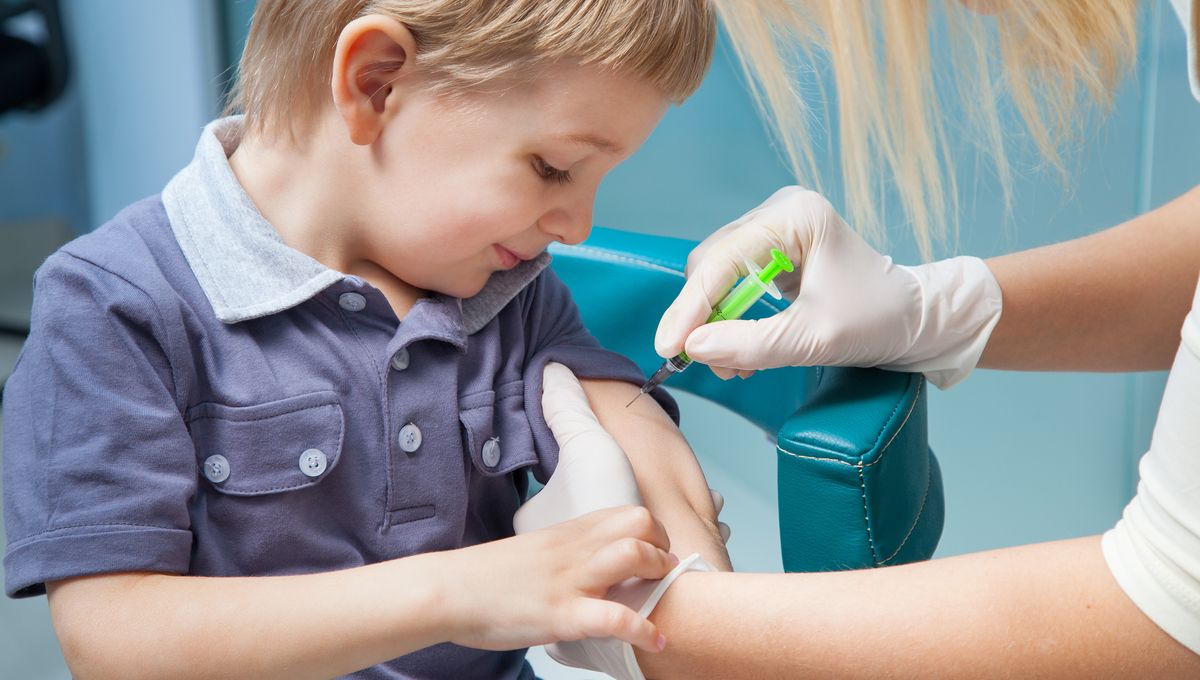
Most US adults believe parents should be required to have their children vaccinated against preventable diseases, according to a new Harvard survey. The results demonstrate that vaccine requirements are not as controversial as is often assumed and are actually supported by the majority of people across the political divide.
The poll was conducted by Harvard T.H. Chan School of Public Health and the de Beaumont Foundation between March 10 and 31 this year. At this time, the US measles outbreaks were already into their third month and were affecting multiple states, all while the government announced its plans to fund research into already debunked conspiracies surrounding vaccines.
A casual viewer of these events would be forgiven for thinking that the subject of vaccines was heavily controversial and that a large proportion of the nation was against their use. However, this new poll completely undermines that assumption. Instead, it suggests that the majority of people in the US, regardless of their political affiliation, actually support parents being required to have their children vaccinated against diseases like measles, mumps, and rubella.
“Childhood vaccine requirements are less controversial than many people may think,” Brian Castrucci, president and CEO of the de Beaumont Foundation, explained in a statement.
“This poll shows that they’re widely supported across political groups – and it’s heartening to see that so many Americans understand the importance of vaccination, which remains a fundamental pillar of public health and disease prevention.”
The poll consisted of a probability-based, nationally representative sample of 2,509 US adults aged 18 upwards. Interviews were conducted online and by telephone in both English and Spanish, and each participant was randomly recruited via an Address Based Sampling frame and from random-digital dial samples.
It found that most US adults (79 percent) believed children should be vaccinated for these preventable diseases. Across the political divide, 90 percent of Democrats supported the idea as well as 68 percent of Republicans. The survey even found that 66 percent of those who support “Make America Great Again” (MAGA) were for childhood vaccines. At the same time, the results indicated that 72 percent of all parents were pro children being vaccinated as well.
Only one in five (21 percent) of US adults do not support routine childhood vaccine requirements.
The most common reason for opposing vaccine requirements, the survey suggested, is parental choice, not concern about the vaccines’ safety.
Among the 21 percent who don’t support vaccine requirements, most (79 percent) said the reason is that they think it should be parents’ choice whether or not to have their child vaccinated. Smaller majorities within those who do not support these requirements say they think government agencies involved in enforcing vaccine requirements are politically biased and influenced by companies (66 percent), that children may be required to get too many vaccines in the future (64 percent), and that vaccine requirements are only there to make money for companies (54 percent).
Only 40 percent of those not in support of vaccine requirements voiced concern over vaccine safety, and only 5 percent and 4 percent of the overall cohort believed vaccines were not very safe or not at all safe, respectively.
On the flip side, the major reason for supporting vaccine requirements included vaccine effectiveness (90 percent), family responsibility to protect schools’ health (87 percent), and concern that diseases will become more prevalent without vaccine requirements (84 percent). In addition, 81 percent believed that vaccination was particularly important to help protect other children who cannot be vaccinated for medical reasons, and that vaccines have been proven to be safe and well-tested (80 percent).
“At this point, public opposition to childhood vaccine policies is often more about parental rights than vaccine safety,” Gillian SteelFisher, survey lead and director of the Harvard Opinion Research Program and principal research scientist at Harvard Chan School added.
“As the country leans on vaccine policies to help address its largest measles outbreak in decades, public health leaders need to be prepared to bring empathy to conversations that go beyond just trying to convince people vaccines are safe.”
On the subject of the political divide, the survey found that 91 percent of the public believe vaccines for childhood preventable diseases are safe for most kids. Belief in vaccine safety was very high among parents (88 percent) and across political affiliations (97 percent Democrats, 88 percent Republicans, and 84 percent of MAGA supporters).
However, a slight political difference does exist. The research found that Republicans (54 percent) and MAGA (47 percent) supporters are less likely to believe vaccines are “very safe”.
Nevertheless, the results are a refreshing reminder that despite some loud opposition on social media, the majority of Americans support vaccine requirements for children and have faith in their effectiveness.
The full topline survey results are available here.
Source Link: Regardless Of Political Affiliation, Most US Adults Actually Support Vaccine Requirements For Kids